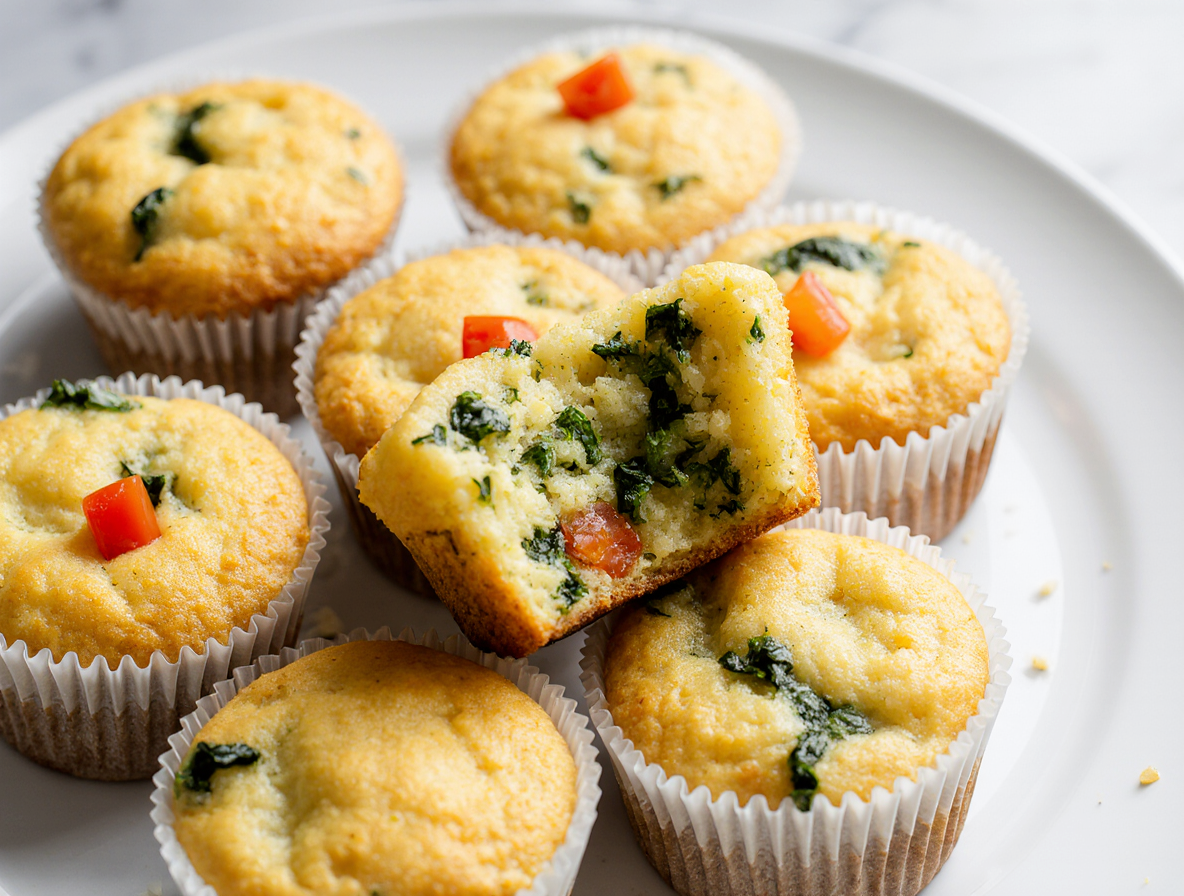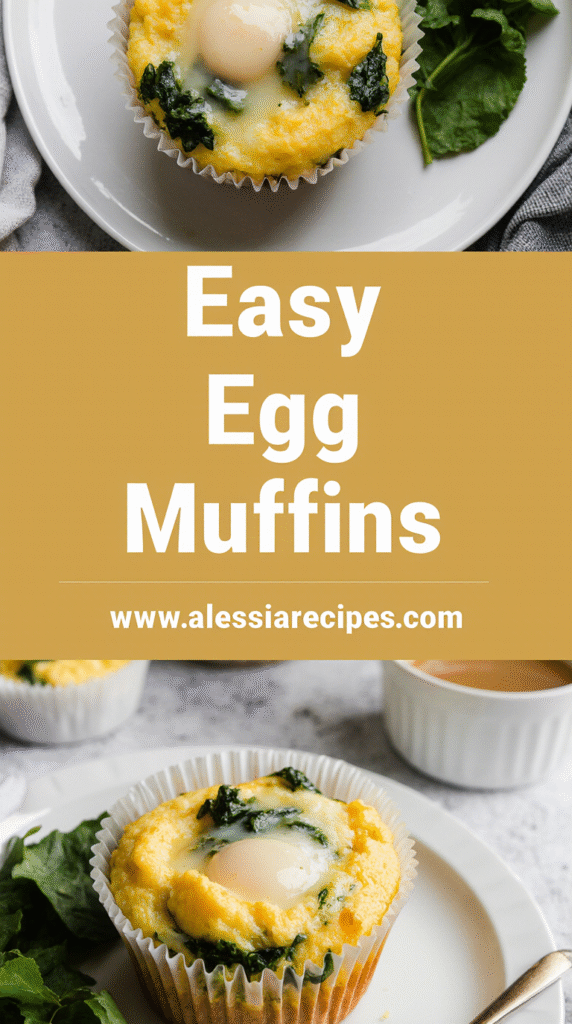Perfect Egg Muffins: The Make-Ahead Breakfast You’ll Actually Love (2025 Guide)
Every time I stock my freezer with egg muffins, I can’t help but feel like I’ve won the breakfast game. These handheld delights, also known as egg bites, are simply eggs baked in a muffin tin with various add-ins like vegetables, cheese, or meat. What makes them actually special? They’re small enough to eat without utensils, therefore perfect for those hectic mornings when you’re rushing out the door.
We love that these breakfast egg muffins pack 10g of protein per serving, keeping hunger at bay long after you’ve finished eating. Furthermore, they’re naturally gluten-free, low in carbs, and provide a powerful start to your day with vegetables first thing in the morning. Making egg muffins is surprisingly easy – specifically designed for meal prep, they can be stored in the refrigerator for up to 5 days [-5]. Whether you prefer mushrooms and bacon or spinach and feta, these make ahead egg muffins are endlessly customizable to suit your taste preferences. In this guide, I’ll show you exactly how to make egg muffins that you’ll actually look forward to eating throughout the week.
What Makes Egg Muffins the Perfect Make-Ahead Breakfast
Meal prepping has always been one of my favorite strategies for staying on budget and keeping overwhelm to a minimum. Breakfast egg muffins stand out as a particularly brilliant solution for hectic mornings.
Quick to prepare, easy to store
Making egg muffins is remarkably simple. You just whisk eggs, add your favorite ingredients, pour into a muffin tin, and bake. The entire process takes about 5 minutes of active prep time, making it manageable even during busy weekends.
Once baked, these protein-packed bites can be stored in an airtight container in the refrigerator for up to five days. For longer preservation, individually wrap them in foil or plastic wrap and freeze for up to three months. This extended shelf life means you can make a double batch and have breakfast sorted for weeks.
To reheat, simply microwave for 30-40 seconds from refrigerated or 1-2 minutes from frozen. The key is avoiding overheating, which can make the eggs rubbery. I’ve found wrapping them in a paper towel when microwaving from frozen helps absorb excess moisture and improves texture.
Great for busy mornings and meal prep
The beauty of make ahead egg muffins lies in their convenience. Knowing I don’t have to put any mental energy into breakfast every morning is genuinely life-changing. These handheld breakfast bites require no utensils, making them perfect for eating on the go.
Many people who make these report that having them ready in the fridge eliminates the excuse to skip breakfast, regardless of how rushed the morning might be. I’ve found them particularly valuable during work weeks when time is at a premium – just grab, reheat, and enjoy.
Additionally, they’re filling despite being low in calories, keeping hunger at bay through the morning. This combination of convenience and satisfaction makes them a staple in my meal prep rotation.
Kid-friendly and customizable
Perhaps the most impressive quality of breakfast egg muffins is their appeal to picky eaters. Parents consistently report that children who normally avoid vegetables happily devour these savory treats. The secret lies in the muffin format and the way ingredients are distributed throughout.
For maximum kid appeal, chop vegetables very finely and start with familiar combinations like:
- Broccoli and cheddar
- Ham and cheese (cheddar or Swiss)
- Spinach and feta
- Bacon and bell pepper
The customization possibilities are virtually endless. I often make multiple flavors in a single batch, which is especially helpful for families with varying preferences. This flexibility means your taste buds never get bored, and you can use up whatever ingredients are lingering in your refrigerator.
Through countless busy mornings, these easy egg muffins have proven themselves as the ideal make-ahead breakfast solution that actually delivers on both convenience and satisfaction.
How to Make Egg Muffins Step-by-Step
Creating egg muffins at home is remarkably straightforward. After making these countless times, I’ve perfected a foolproof method that delivers perfect results every time.
1. Gather your ingredients
The foundation of any good egg muffins recipe starts with:
- Eggs: About 8-10 large eggs for a standard 12-cup muffin tin
- Liquid: 1/4 cup milk or heavy cream for creaminess
- Seasonings: Salt, pepper, garlic powder, onion powder, dried herbs
- Add-ins: Vegetables, meats, and cheese of your choice
- Equipment: Muffin tin, mixing bowl with pour spout, whisk
I’ve found that whole milk or half-and-half creates the creamiest texture, though non-dairy milk works well too. Without some liquid, the muffins can turn out dry and dense.
2. Prep your add-ins
Importantly, always pre-cook your add-ins before mixing with eggs. Raw vegetables release water during baking, resulting in soggy muffins. Likewise, meats must be fully cooked.
For vegetables, roasting brings out the best flavor, but sautéing or steaming works too. Just ensure you pat them dry afterward to remove excess moisture. Chop everything into small, bite-sized pieces (about 1/4 inch) – this ensures even distribution throughout each muffin.
3. Whisk and pour the egg mixture
In a large bowl or measuring cup with a spout, whisk eggs with milk and seasonings until just combined. Be careful not to overmix, as this can incorporate too much air and affect the texture.
First, distribute your pre-cooked add-ins among the muffin cups (about 2-3 tablespoons each). Then sprinkle cheese on top before pouring the egg mixture over everything, filling each cup about 3/4 full.
4. Bake and cool properly
Bake at 350-375°F for 18-22 minutes until the eggs are set but not overcooked. They’ll puff up significantly while baking – don’t worry, this is normal! They’ll deflate as they cool.
Let them cool in the pan for about 5 minutes before running a knife around the edges and removing. This cooling period is crucial; it allows the eggs to set completely and makes removal easier.
Best Add-Ins and Flavor Combinations
The magic of egg muffins lies in their infinite flavor possibilities. Over years of experimentation, I’ve discovered certain ingredient pairings that consistently deliver outstanding results. Let me share my top combinations that will transform your breakfast routine.
Spinach and feta
This Mediterranean-inspired duo brings together leafy greens and tangy cheese for a protein-packed start to your day. Fresh spinach works beautifully, though I recommend cooking it briefly to remove excess moisture. Alternatively, thawed frozen spinach (well-drained) saves time without sacrificing flavor. The tangy, salty feta balances perfectly with the mild spinach. Each spinach and feta egg muffin provides approximately 7 grams of protein and just 100 calories, making them ideal for any diet plan.
Ham and cheddar
This classic pairing never disappoints. I prefer using fresh deli ham chopped into small pieces, though leftover holiday ham works wonderfully too. Sharp cheddar provides the best flavor punch, but feel free to experiment with milder varieties for children. For extra dimension, consider adding a sprinkle of green onions or a dash of garlic powder.
Mushroom and Swiss
For an earthy, sophisticated flavor profile, cremini mushrooms paired with Swiss cheese create a remarkably satisfying breakfast egg muffin. Sauté the mushrooms first to release their moisture and concentrate their flavor. For enhanced depth, try adding a minced shallot or garlic clove during the mushroom cooking process.
Bacon and bell pepper
Crispy bacon pieces combined with sweet bell peppers create a perfect balance of smoky and fresh flavors. Red peppers offer the sweetest profile, though any color works beautifully. The bacon provides satisfying richness while the peppers contribute essential vitamins and a pleasant crunch. For a spicy variation, add diced jalapeños.
Broccoli and mozzarella
This vegetable-forward combination pairs wonderfully with mild, melty mozzarella cheese. Steam the broccoli florets briefly before adding them to your easy egg muffins mixture – they should retain some firmness. This pairing works particularly well with Italian seasoning or a pinch of red pepper flakes for heat.
Sausage and onion
The savory richness of cooked sausage alongside sweet onions creates truly satisfying make ahead egg muffins. You can use any variety – Italian, breakfast, turkey, or even chorizo for a spicy kick. Cook and crumble the sausage thoroughly, draining excess fat before incorporating it into your egg mixture. Red, white, or green onions all work beautifully in this versatile combination.
Storage, Reheating, and Freezing Tips
The perfect egg muffins aren’t just about the baking – proper storage makes all the difference between soggy disappointments and breakfast delights throughout the week.
How to store in the fridge
Initially, cooling your egg muffins completely is crucial. I always place mine on a wire rack for 15-20 minutes before storage. This prevents condensation that leads to sogginess. Once cooled, transfer them to an airtight container lined with paper towels – this clever trick absorbs excess moisture. In the refrigerator, they’ll maintain their quality for up to 5 days.
Freezing instructions
For longer preservation, individually wrap each muffin in plastic wrap or foil. Next, place them in a freezer-safe bag or container. To maximize quality, some experts recommend flash freezing first – arrange muffins in a single layer on a baking sheet for about an hour before transferring to your storage container. Properly frozen make ahead egg muffins remain good for up to 3 months.
Reheating without rubbery texture
The secret to non-rubbery breakfast egg muffins is gentle reheating. For refrigerated muffins, microwave for 20-30 seconds wrapped in a damp paper towel. From frozen, microwave for 60-90 seconds. In contrast, oven reheating produces excellent results – 350°F for 10 minutes. My personal favorite method is the air fryer at 375°F for 3-4 minutes, which creates slightly crispy edges.
How long they last
Refrigerated egg muffins remain fresh for 4-5 days. Once frozen, they maintain quality for up to 3 months. Watch for signs of spoilage including off odors, excessive sogginess, or discoloration.
Best containers to use
Airtight containers are essential for preserving texture and flavor. Glass containers work exceptionally well since they’re non-porous and won’t transfer odors. For freezer storage, freezer-safe zip-top bags with air removed prevent freezer burn. If using plastic containers, ensure they’re microwave-safe for convenient reheating.
Conclusion
Egg muffins certainly deserve a spot in your weekly meal prep routine. After making these protein-packed bites part of my breakfast regimen, hectic mornings became significantly less stressful. Therefore, I can confidently say they’re worth the minimal effort required.
Perhaps the greatest advantage lies in their versatility. You can easily switch between spinach and feta one week to bacon and bell pepper the next, keeping your taste buds interested while maintaining your healthy eating habits. Additionally, their grab-and-go nature eliminates the excuse to skip breakfast, regardless of how rushed your morning might be.
Storage and reheating issues once worried me, though these concerns vanished after discovering the paper towel trick for refrigeration and the damp towel method for reheating. Consequently, my egg muffins stay fresh and delicious all week long.
During busy weeks when cooking feels overwhelming, I find comfort knowing breakfast takes just 30 seconds to prepare. Meanwhile, my family appreciates having options tailored to their preferences—my kids particularly enjoy the ham and cheddar variety.
Overall, these make-ahead egg muffins represent the rare intersection of convenience, nutrition, and taste. Undoubtedly, they’ll become a staple in your meal prep arsenal, just as they have in mine. Give them a try this weekend, and you’ll wonder how you ever managed mornings without them.
FAQs
Q1. How long can I store egg muffins in the refrigerator? Egg muffins can be safely stored in an airtight container in the refrigerator for up to 5 days. To maintain their quality, make sure they are completely cooled before storing and line the container with paper towels to absorb excess moisture.
Q2. What’s the best way to reheat egg muffins without making them rubbery? To reheat egg muffins without compromising texture, wrap them in a damp paper towel and microwave for 20-30 seconds if refrigerated, or 60-90 seconds if frozen. Alternatively, you can reheat them in an oven at 350°F for about 10 minutes or in an air fryer at 375°F for 3-4 minutes for slightly crispy edges.
Q3. Can egg muffins be customized for different dietary preferences? Absolutely! Egg muffins are highly customizable. You can create various flavor combinations using different vegetables, cheeses, and meats. Popular options include spinach and feta, ham and cheddar, mushroom and Swiss, and broccoli and mozzarella. They’re also naturally gluten-free and can be adapted for low-carb diets.
Q4. How do I prevent my egg muffins from becoming soggy? To prevent sogginess, allow the egg muffins to cool completely on a wire rack before storing. Pre-cook any vegetables to remove excess moisture, and when storing, line the container with paper towels. If freezing, wrap each muffin individually in plastic wrap or foil before placing them in a freezer-safe bag.
Q5. Are egg muffins a good option for busy mornings? Yes, egg muffins are an excellent choice for hectic mornings. They can be prepared in advance, require no utensils to eat, and are easily portable. With about 10g of protein per serving, they provide a filling and nutritious start to your day. Simply grab one from the fridge or freezer, reheat quickly, and enjoy a hassle-free breakfast on the go.


